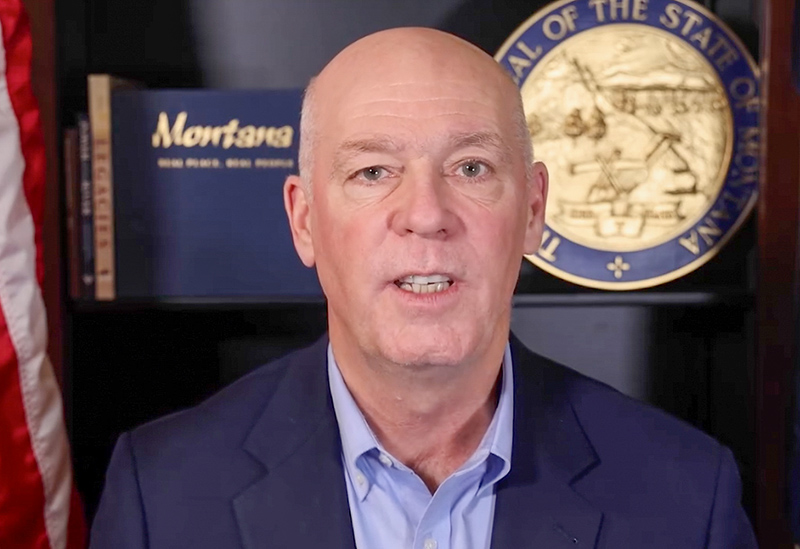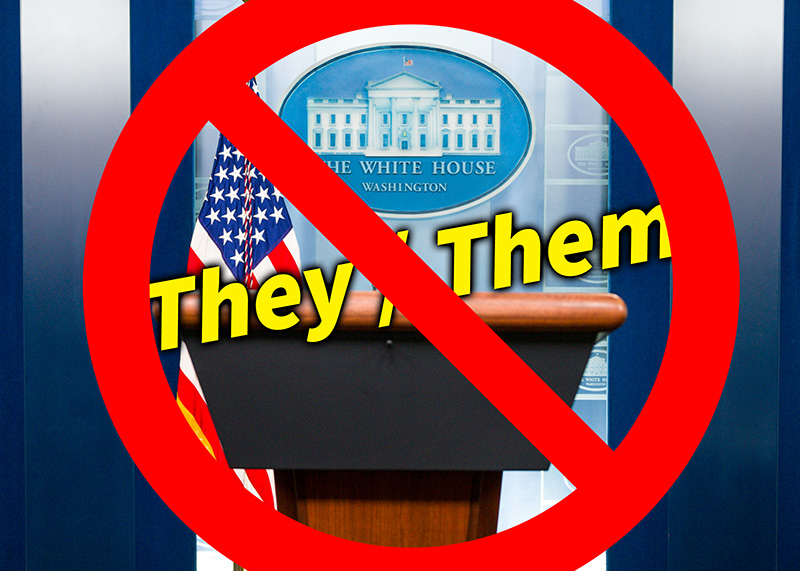Tennessee Ban on Trans Health Care to Take Effect Immediately
A federal appeals court has reversed a judge's order and will allow Tennessee to enforce its ban on gender-affirming care for minors.

A federal appeals court overruled a lower court judge’s order blocking the state of Tennessee from attempting to enforce its law prohibiting transgender-identifying minors from accessing gender-affirming care.
As a result, the state can continue enforcing the law, including penalizing and disciplining doctors who recommend hormones, puberty blockers, or other treatments designed to facilitate a person’s gender transition.
Three families of transgender youth and a medical doctor who specializes in treating transgender patients sued to block the state from seeking to enforce the law, which was approved by the Republican-dominated legislature and signed by Gov. Bill Lee earlier this year.
A federal judge subsequently issued an injunction blocking the state from taking any adverse action against doctors who recommend non-surgical gender-affirming treatments, on the grounds that the plaintiffs in the case were likely to succeed in proving their claim that the law is unconstitutional and should be overturned.
The plaintiffs have argued that the Tennessee law runs counter to federal laws prohibiting discrimination in health care and violates both the rights of trans minors and the rights of their parents to make whatever medical decisions they believe to be in their children’s best interests.
But in a July 8 decision, the 6th U.S. Circuit Court of Appeals ruled 2-1 to override the lower court, saying that decisions on emerging policy issues like gender-affirming care are better left to legislatures than judges to decide.
“Given the high stakes of these nascent policy deliberations — the long-term health of children facing gender dysphoria — sound government usually benefits from more rather than less debate,” Chief Judge Jeffrey Sutton, an appointee of former President George W. Bush, wrote on behalf of the court.
The circuit court’s ruling is preliminary, meaning it will only remain in force until the 6th Circuit fully reviews the appeal. Sutton wrote that the appeal process would be expedited and intends to resolve the case by Sept. 30.
If the circuit court remains firm in its decision to stay the injunction, the plaintiffs can still argue the law is unconstitutional, at which point U.S. District Judge Eli Richardson, of the Middle District of Tennessee, will rule based on the merits of the case.
The 6th Circuit’s decision runs counter to rulings from several other courts, which have generally found that plaintiffs are likely to succeed in having laws banning access to gender-affirming care declared unconstitutional.
While at least 20 states have enacted laws blocking doctors from recommending gender-affirming treatments, many of those laws have encountered resistance in the courts.
Last month, a federal judge struck down an Arkansas law prohibiting gender-affirming care as unconstitutional. Similar restrictions in Alabama, Florida, Kentucky, and Indiana have been blocked from taking effect on the grounds that they may be unconstitutional, while Oklahoma’s ban cannot be enforced under a binding non-enforcement agreement.
Sutton even acknowledged in his decision that the 6th Circuit was straying from most other courts’ rulings.
“We appreciate their perspectives, and they give us pause,” he wrote. “But they do not eliminate our doubts.”
Sutton was joined in his opinion by Judge Amul Thapar, an appointee of former President Donald Trump. Judge Helene White, who was first nominated by former President Bill Clinton and later by George W. Bush, concurred in part and dissented in part.
Specifically, White said she believes the law is likely unconstitutional but believes the lower court overstepped its bounds by applying the injunction statewide.
Instead, she argued she would have limited her ruling to apply only to the plaintiffs who filed the lawsuit, and to the Vanderbilt University Medical Center, where some of the plaintiffs had sought care.
Tennessee Attorney General Jonathan Skrmetti praised the court for allowing the state to enforce the ban, which proponents say is essential to preventing youth suffering from gender dysphoria from pursuing irreversible medical interventions they will likely regret as they age.
Lawyers for the plaintiffs from the American Civil Liberties Union, the ACLU of Tennessee, and two law firms called the ruling a “heartbreaking development.”
“As we and our clients consider our next steps, we want all the transgender youth of Tennessee to know this fight is far from over and we will continue to challenge this law until it is permanently defeated,” the civil rights organizations and law firms said in a joint statement.
The U.S. Department of Justice previously filed its own challenge to the law, arguing that it is discriminatory in nature and should be blocked from being enforced.
“This whiplash of decisions makes clear exactly why the government should not be inserting itself into private medical decisions that should be left to families and doctors,” the Rev. Jasmine Beach-Ferrara, the executive director at the Campaign for Southern Equality, said in a statement. “Now, Tennessee families of transgender youth are being forced into a period of unprecedented — and wholly unnecessary — legal chaos as they navigate how to ensure that their children can access the health care they need and deserve.”
“A truly horrible opinion — on the substance and in the results — from Jeff Sutton,” tweeted Chris Geider of the legal analysis website LawDork, adding in a later tweet that Sutton’s decision was “An astounding act of judicial activism posed as modesty.”
A truly horrible opinion — on the substance and in the results — from Jeff Sutton overnight. I got in what I could in this initial report, but it truly could be twice as long. https://t.co/4i3iIUeJWj
— Chris Geidner (@chrisgeidner) July 8, 2023
Support Metro Weekly’s Journalism
These are challenging times for news organizations. And yet it’s crucial we stay active and provide vital resources and information to both our local readers and the world. So won’t you please take a moment and consider supporting Metro Weekly with a membership? For as little as $5 a month, you can help ensure Metro Weekly magazine and MetroWeekly.com remain free, viable resources as we provide the best, most diverse, culturally-resonant LGBTQ coverage in both the D.C. region and around the world. Memberships come with exclusive perks and discounts, your own personal digital delivery of each week’s magazine (and an archive), access to our Member's Lounge when it launches this fall, and exclusive members-only items like Metro Weekly Membership Mugs and Tote Bags! Check out all our membership levels here and please join us today!

























You must be logged in to post a comment.